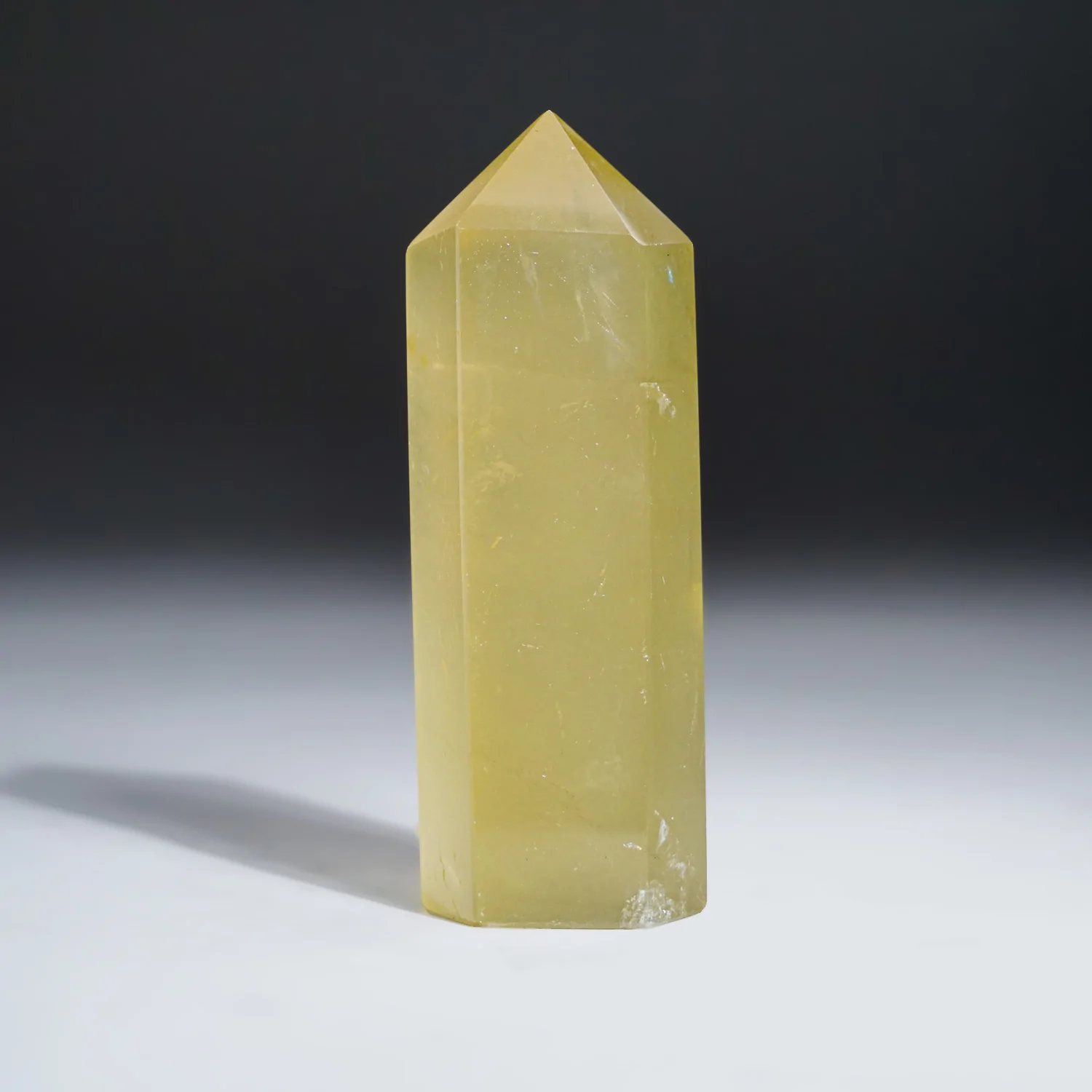Lemon Quartz, is one of those precious gems that are hard to come by. Its energy and benefits make it a versatile piece, either as a decorative item or as an accessory in homes. Predominantly found in Madagascar and Brazil, Yellow Quartz is highly sought after for its appealing aesthetics. Lemon Quartz (Lemon, Yellow Quartz) is believed to represent emotions and is loved for its ability to provide positive energy. Its use near electronic devices is popular due to its ability to block radiation.
What Are the Benefits of Lemon Quartz?
The benefits of Lemon Quartz can be outlined as follows;
- Regulates blood sugar, contributing to the treatment of diabetes.
- Effective in digestion system and stomach issues.
- Speeds up the recovery period after surgeries and medical operations.
- Helps in reducing appetite which aids in weight loss.
- Contributes to overcoming nicotine addiction and supports those who wish to quit smoking.
- Assists in boosting metabolism.
What Is Lemon Quartz Used For?
Those who use Lemon Quartz can place the stone inside a glass dome to spread positive energy throughout their homes. This is a widespread application.
The purposes of using Lemon Quartz include;
- Boosting positive energy while keeping negative energy at bay.
- Clearing the mind and enhancing concentration.
- Making speech more fluent.
- Strengthening communication.
What does Lemon Quartz Mean?
Named after its lemon color, the meaning of Lemon Quartz could be interpreted as the stone of independence or creativity. This stone brings clarity and innovation to ideas while emphasizing strength and independence. It’s beneficial for both physical and mental health, acting as a bridge between body and mind. It’s believed that its yellow color traps bad energy and spreads good energy, hence its increasing use in homes.
What Are the Characteristics of Lemon Quartz?
The characteristics of Lemon Quartz are as follows;
- Its color is pale yellow. It can be confused with Citrine due to its color similarity.
- It’s suitable for use as a single-piece decorative item.
- Has a hard and durable structure.
- Can be found in crystal, opaque, transparent, or translucent forms.
- Though naturally formed, it can also be obtained by eposing other quartz group stones to high heat. This process compensates for the rarity of Lemon Quartz.
How Can You Tell If Lemon Quartz Is Real?
To determine if Lemon Quartz is genuine, the simplest and most conclusive test done on quartz stones involves using the stone to scratch glass. If the stone is hard enough to scratch the glass, it’s considered authentic. Furthermore, when touched, Lemon Quartz should feel cold if it’s real. If the stone doesn’t feel cold at room temperature, it’s likely fake. However, this method may not be definitive for fake stones made using glass as they can also feel cold at room temperature. A detailed eamination using a magnifying glass can be helpful. Pure and natural Lemon Quartz has a rough teture, while fake stones usually have a smooth surface due to processing.
How Should Lemon Quartz Be Cleaned?
To clean Lemon Quartz, it’s important to avoid cleaning methods that could damage the stone, such as the use of soapy water. It’s believed that if Lemon Quartz is not regularly maintained, it loses its positive energy and starts emitting negative energy. Important to its care, the stone should be cleaned with lukewarm water without the use of any chemical cleaning agents. Washing and wiping the stone with water and a cloth, then drying it, keeps the stone looking great and maintains its energy. Selecting a specific place to keep Lemon Quartz is crucial because that place becomes its energy field and, after cleaning, the stone should be returned to its energy field.
